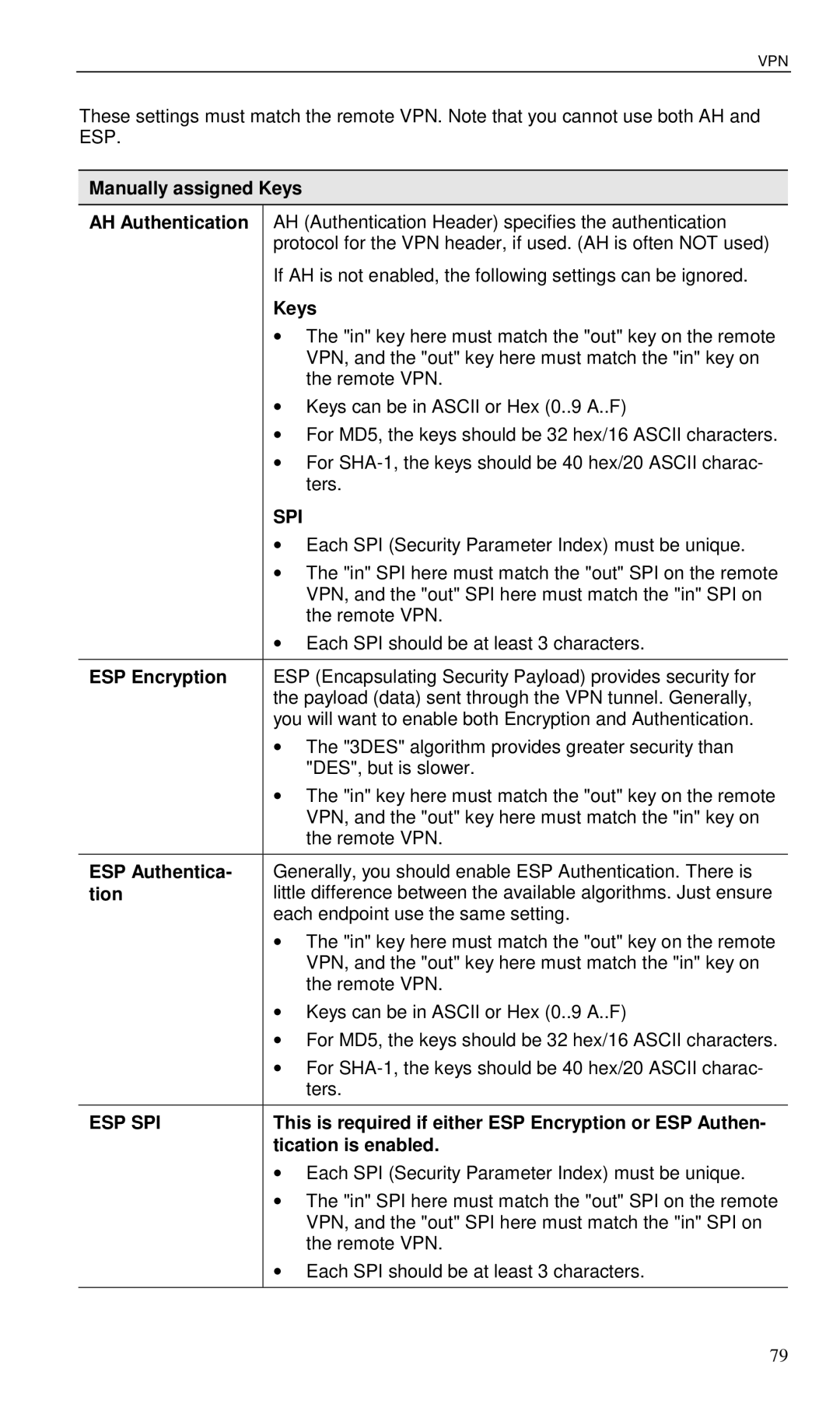
VPN
These settings must match the remote VPN. Note that you cannot use both AH and ESP.
Manually assigned Keys
AH Authentication AH (Authentication Header) specifies the authentication protocol for the VPN header, if used. (AH is often NOT used)
If AH is not enabled, the following settings can be ignored.
Keys
∙ The "in" key here must match the "out" key on the remote VPN, and the "out" key here must match the "in" key on the remote VPN.
∙ Keys can be in ASCII or Hex (0..9 A..F)
∙ For MD5, the keys should be 32 hex/16 ASCII characters.
∙ For
| SPI |
| ∙ Each SPI (Security Parameter Index) must be unique. |
| ∙ The "in" SPI here must match the "out" SPI on the remote |
| VPN, and the "out" SPI here must match the "in" SPI on |
| the remote VPN. |
| ∙ Each SPI should be at least 3 characters. |
|
|
ESP Encryption | ESP (Encapsulating Security Payload) provides security for |
| the payload (data) sent through the VPN tunnel. Generally, |
| you will want to enable both Encryption and Authentication. |
| ∙ The "3DES" algorithm provides greater security than |
| "DES", but is slower. |
| ∙ The "in" key here must match the "out" key on the remote |
| VPN, and the "out" key here must match the "in" key on |
| the remote VPN. |
ESP Authentica- | Generally, you should enable ESP Authentication. There is |
tion | little difference between the available algorithms. Just ensure |
| each endpoint use the same setting. |
| ∙ The "in" key here must match the "out" key on the remote |
| VPN, and the "out" key here must match the "in" key on |
| the remote VPN. |
| ∙ Keys can be in ASCII or Hex (0..9 A..F) |
| ∙ For MD5, the keys should be 32 hex/16 ASCII characters. |
| ∙ For |
| ters. |
ESP SPI | This is required if either ESP Encryption or ESP Authen- |
| tication is enabled. |
| ∙ Each SPI (Security Parameter Index) must be unique. |
| ∙ The "in" SPI here must match the "out" SPI on the remote |
| VPN, and the "out" SPI here must match the "in" SPI on |
| the remote VPN. |
| ∙ Each SPI should be at least 3 characters. |
79
